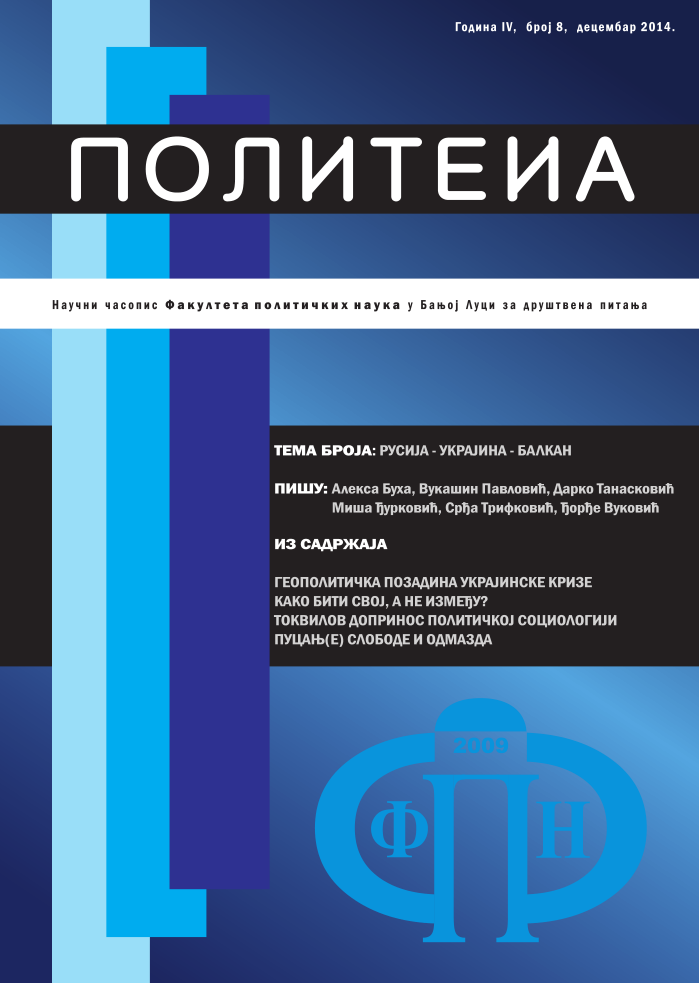Ofanzivni realizam i male države - slučaj Balkana u Prvom svetskom ratu
Offensive realism and small states: Case of Balkans in World War I
Author(s): Vladimir TraparaSubject(s): Politics, Political Theory, Political Sciences, Political history, Pre-WW I & WW I (1900 -1919)
Published by: Fakultet političkih nauka Univerziteta u Banjoj Luci
Keywords: offensive realism; great powers; small states; World War I; Balkan; Serbia; Romania; Bulgaria; Greece;
Summary/Abstract: Author strives to use the theory of offensive realism in context of roles and behaviors of small Balkan states (Serbia, Romania, Bulgaria and Greece) in World War I which points to futility of discussion whether the blame for starting the war should be attributed to great Germany or small Serbia. Analysis shows that small Balkan states behaved totally according to offensive realism theory - they were even directed towards expansionism more than most great powers, whose expansionism was primarily defensive. Yet, their role in causing the war was smaller than the role of great powers as key actors of international relations, which excludes the guilt of any of them, including Serbia. As Germany was the most powerful state at the time, her role was most significant but Germany can't be blamed as the culprit of war. Cause of World War I lies in the fact that international system of that time had the characteristics of unbalanced multipolar system, and that the most powerful force in it, Germany, resorted to policy of hegemony in order to secure its own safety. Analysis offers series of lessons for modern international relations, especially for roles and behaviors of small states in those relations. Example of Balkans in World War I and of latter events shows how intemperance in expansionist ambitions of small states can be disastrous for them.
Journal: Politeia - Naučni časopis Fakulteta političkih nauka u Banjoj Luci za društvena pitanja
- Issue Year: 4/2014
- Issue No: 8
- Page Range: 235-250
- Page Count: 16
- Language: Serbian

